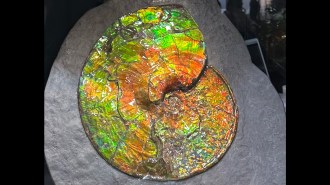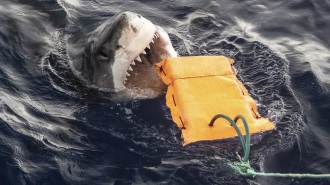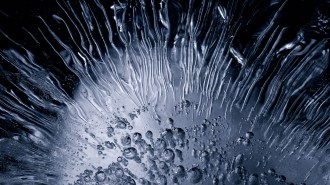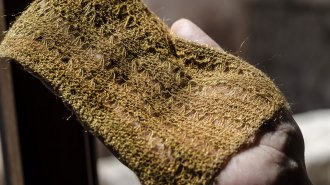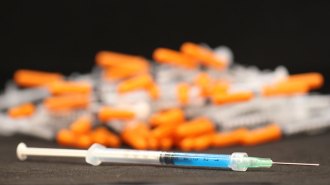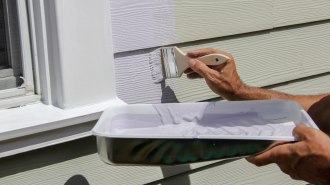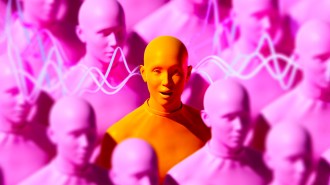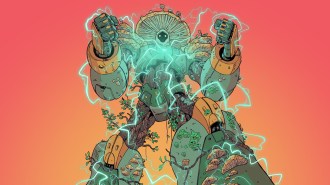Cellulose that stiffens and softens
A new material inspired by the skin of sea cucumbers goes from firm to flabby in minutes. The substance could find wide use in medicine—including as brain implants.
Sea cucumbers tense up in seconds by linking the collagen fibers of their skin into a stiff net. Releasing the connections between the fibers causes the echinoderms to go soft.
To make a material with similar properties, polymer scientist Christoph Weder of Case Western Reserve University in Cleveland, Ohio, bonded cellulose “whiskers” to a nanoparticle glue. The whiskers glom on to one another, making the material as stiff as a plastic compact disc case, Weder says. Add water, and the whiskers separate and the material softens. But the nanoparticles remain bonded, holding the material together. When the water evaporates, the cellulose bonds return, making the material stiff again, Weder and colleagues report in the March 7 Science.
This property is ideal for making electrodes that zap brain cells into action, a therapy that could treat Parkinson’s disease or paralysis, Weder says. To be surgically inserted into the brain, implants need to be rigid. But once in place, the implants might work better if they mimicked the brain’s squishy consistency. Weder’s colleague Dustin Tyler is already testing the new material in rat brains with results expected by the end of the year.
